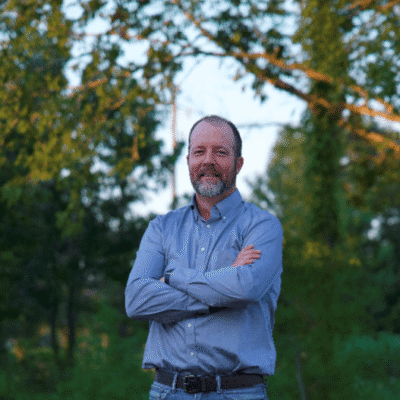 This post is part of the Epilepsy Blog Relay™ that will run from June 1 through June 30. Follow along and add comments to posts that inspire you!
This post is part of the Epilepsy Blog Relay™ that will run from June 1 through June 30. Follow along and add comments to posts that inspire you!
Overcoming the stigma
Stigma is negatively judging someone based on a particular attribute, such as having a health condition (Mental or physical). It is known that people view the various stereotypes about certain illnesses and let those determine their beliefs. Stigma has a tremendously harsh and hurtful impact on people with these conditions. Epilepsy is a condition which has a long history of negative stereotypes and stigma.
Stigma with epilepsy can be subtle, but some people aren’t so quiet about it. Growing up I had people make negative comments about my seizures and the way they made me look. As soon as people heard I had epilepsy they would panic, and visualize me on the floor convulsing and frothing at the mouth.
Stigma can make you feel ashamed, embarrassed and it can make you lose your confidence. For some time I didn’t dare leave my house because I was so frightened of being laughed at or judged. That changed one day when I was out with my pen and paper writing up a story on the bus to college, a girl came and sat next to me. She asked me what I was writing and I told her that writing was (it still is) my escape. “Don’t you ever let a soul in the world tell you that you can’t be exactly who you are”. I’ll never forget what she said. Her words have stuck with me ever since.
Some effects of stigma can include:
- Reluctance to seek help or treatment
- Lack of understanding by family, friends, co-workers or others you know
- Fewer opportunities for work, school or social activities or trouble finding housing
- Bullying, physical violence or harassment
- The belief that you’ll never be able to succeed at certain challenges or that you can’t improve your situation
You’re facing stigma: How to cope?
I’m not going to sit back and pretend that I coped with the stigma behind epilepsy and mental health like a trooper and that it didn’t bother me one bit. That’d be a huge lie. From around the age of 14-16 I did struggle, but that’s when I realised that I could be the change I wanted to see in this world. I decided I wanted to get out there and teach people as much as I could about my condition, and that is what got me where I am today, and I want to help you too.
A few tips:
- My first tip is to get educated. Make sure you know your stuff before you go and talk to people, then, once you feel confident- share what you’ve learned with your family and friends. Knowledge is one of the best and strongest ways to fight the stigma.
- Another good tip is to accept help (and seek it!!). One in every three people with epilepsy will experience some form of depression during their lifetime-keep in mind that emotional health conditions are treatable, so there’s no need to struggle in silence. Once you are managing your emotions you will feel much stronger emotionally to tackle your other challenges.
- Remember that you are not your condition. You may have Epilepsy, but it doesn’t have you! I try to avoid using terms like Epileptic, because that allows you to keep a little control!
- My biggest, most passionate tip I can give you is to get involved. This is what made me who I am today. I reached out and found ways to put my ideas, my passions, my experience and myself into work and campaigns to help other people. Find out what groups are around you or organisations you’d like to be involved with that don’t necessarily need to be around the corner. Getting involved in a group can help change the way people view you and your work can help your colleagues and school friends to be more understanding and supportive of you and other individuals with health conditions.
Say no to stigma
I want people to know more about epilepsy, so we can say a big NO to stigma because stigma doesn’t just come from others. You may mistakenly believe negative things that you tell yourself over time. I believe that by seeking support, educating yourself about your condition and connecting with others with similar experiences can help you gain self-esteem and overcome some huge obstacles we are faced with epilepsy. So that is step one of knowing epilepsy.
I know that you may sometimes be reluctant to tell anyone about your condition, but your family, friends, colleagues or members of your community can be so helpful and they will feel so much more comfortable knowing about your condition than if you were to have a seizure in front of them and they had no idea. People can offer you support if they know about your epilepsy. Reach out to people and help make a change. Know Epilepsy!
And like I said before, don’t make yourself your condition or illness. You are not an illness or a condition- you are YOU and you’re very special. No stigma allowed here. “You may not control all the events that happen to you, but you can decide not to be reduced by them.” ― Maya Angelou
NEXT UP: Be sure to check out the next post tomorrow on https://busfair.blogspot.co.uk/p/home_24.html for more on Epilepsy Awareness. For the full schedule of bloggers visit livingwellwithepilepsy.com. And don’t miss your chance to connect with bloggers on the #LivingWellChat on June 30 at 7PM ET.









David
What a great open, honest post, Emily. Really good messages, tips, and, most importantly, calls to action. I’m being challenged by my own biases as I learn to be the father of a child with epilepsy, and it’s motivating me to do my part and help in the broader community, too. Thanks for sharing!
Emily Sian Donoghue
Hi David, thank you very much. Keep on fighting, you’re doing a great job. You will face your greatest opposition when you are closest to your biggest miracle!